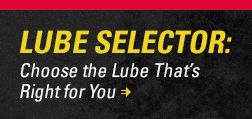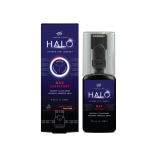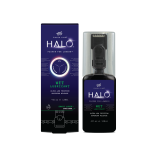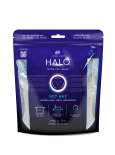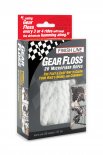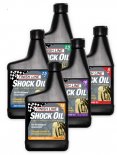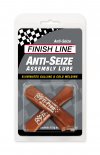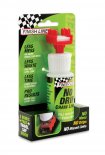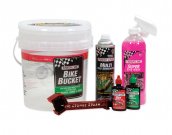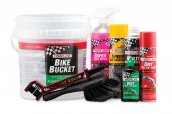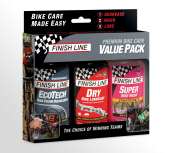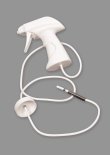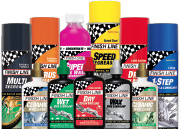Safety, Health and the Environment; A topic that Finish Line takes VERY Seriously
“Develop premium quality and performance-enhancing bicycle lubricants. Formulate them with ingredients that respect the environment. Package them in containers that are easy to use and easy to recycle. Market them honestly. Price them fairly.” In 1988, this was the mission statement upon which Finish Line was launched. To this day, this mission statement defines and guides Finish Line.
1988: Finish Line’s first product, Teflon® Plus, used 100% recyclable aluminum cans, non-toxic and biodegradable synthetic oils, and CFC-free propellant. Finish Line has gone on to make many other aerosols, and none of them use CFC’s, which many consumers do not realize were banned back in the 1970’s.
1990: Finish Line offers its Teflon® lubricant in a non-aerosol and fully recyclable (#2) high density polyethylene squeeze bottle. This same year, the company develops a 100% biodegradable non-toxic bicycle degreaser made from fluids that are distilled from orange peels. The incredible power of this product, Finish Line Citrus Degreaser, changes the way bicycle chains are degreased.
1992: Finish Line introduces Cross Country, a fully synthetic non-toxic lubricant that is made with inherently biodegradable base oils.
1993: Finish Line develops a line of petroleum-free and fully non-toxic Shock Oils. This same year, Finish Line introduces a non-toxic synthetic grease which quickly becomes the grease of choice in mountain biking.
1995: Finish Line develops a second degreaser called EcoTech. This 100% biodegradable bicycle degreaser is not as aggressive on plastic and gaskets as Finish Line’s Citrus degreaser.
1998: Finish Line introduces a mechanical chain cleaner with a patented rotating brush design that removes abrasive contaminates from the deepest crevices of a chain. When used regularly, and in conjunction with lubricant, chain life is increased by a factor of up to 10X. The net eco-impact of less land-fill disposal and less energy to build replacement chains and chain-rings is not lost on forward thinking and eco-minded cyclists.
2000: Finish Line introduces a 100% biodegradable and non-toxic Bike Wash. The USA’s first Bike Wash is packaged in highly recyclable PET plastic (#1) and uses a pump sprayer.
2004: Finish Line’s R&D efforts involving renewable solvents, derived from soybeans, is completed. This new technology is utilized in EcoTech-2 degreaser. (Which obsoletes the original EcoTech). As a side benefit, the USA grown soy-solvent ingredients increase the strength of EcoTech without affecting its compatibility with plastic and rubber.
2006: Finish Line develops a new line of separate-and-recycle clam shell packages for its chain cleaners and assorted dry goods. The packaging is made from highly recyclable PET plastic (#1). Blisters that are Heat sealed to cardboard (and therefore hard to recycle) are no longer used by Finish Line.
2007: Finish Line’s 2 year R&D project innovating with ceramic technologies (using non-toxic and 100% natural boron nitride) is completed. The company introduces its first ceramic lubricant. The FDA approved and fully non-toxic synthetic base oils in ceramic Wet meet the ‘inherently biodegradable designation.
2008: Finish Line meets the requirements for Europe’s new Registration, Evaluation and Authorization of Chemicals initiative know as “REACH”.
Ongoing: Finish Line’s commitment to the environment has remained consistent since its inception in 1988. All products use ingredients that are either non-toxic or biodegradable or both. All products use recyclable packaging that meet both EU and US recyclability standards. Research and Development efforts are ongoing and always involve the study and use of base oils and cleaning solvents that are biodegradable and/or derived from renewable resources. That being said, Finish Line’s commitment to performance will not allow us to commercialize products that do not meet the highest performance standards in the industry.
